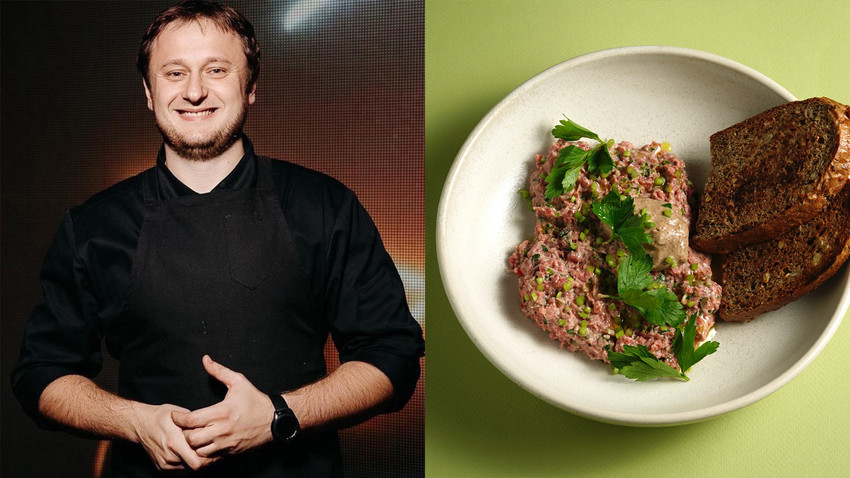
Vyatcheslav Kazakov has worked for several years as chef at a number of famous restaurants in Moscow and the wider region, among them Oblaka and Bosco Cafe. This fall, he opened up his own neo-bistro in downtown Moscow called Hands. Respect - for the guests, the staff, the environment and the food - is what drives its mission.

Hands neo-bistro.
Press ServiceKazakov studied gastronomy with such masters as Spanish experimentalist Juan Maria Arzak, one of the founders of molecular cuisine, and Rasmus Kofoed - the number one chef in Denmark, whose Geranium restaurant was awarded three Michelin stars.
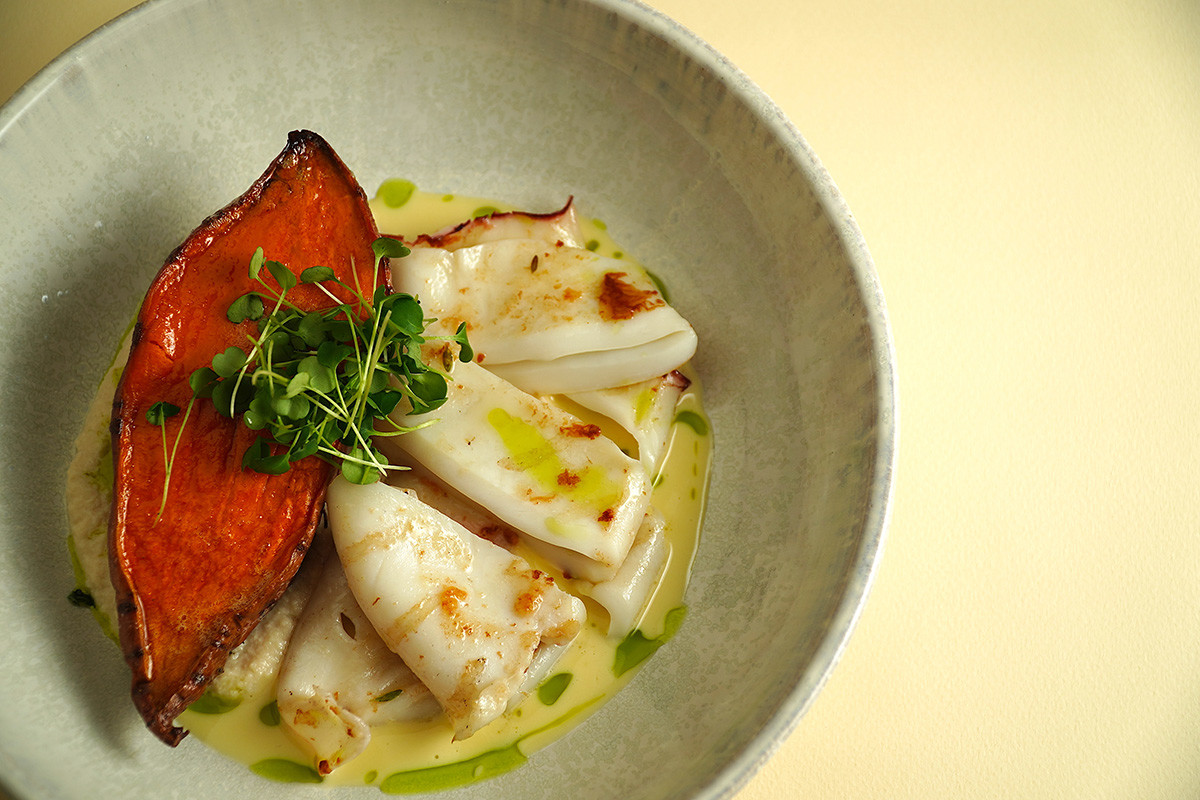
Fried squid over baked sweet potato in beurre blanc sauce.
Press ServiceThe food at Hands is a complex mix of simple ingredients that, in symbiosis, gives birth to special creations. For example, pelmeni with guinea fowl and sour cream, home-made baked milk syrniki with coconut syrup, fried squid over baked sweet potato in beurre blanc sauce, and, for dessert, a medovik (honey cake) with a ryazhenka-based sauce.
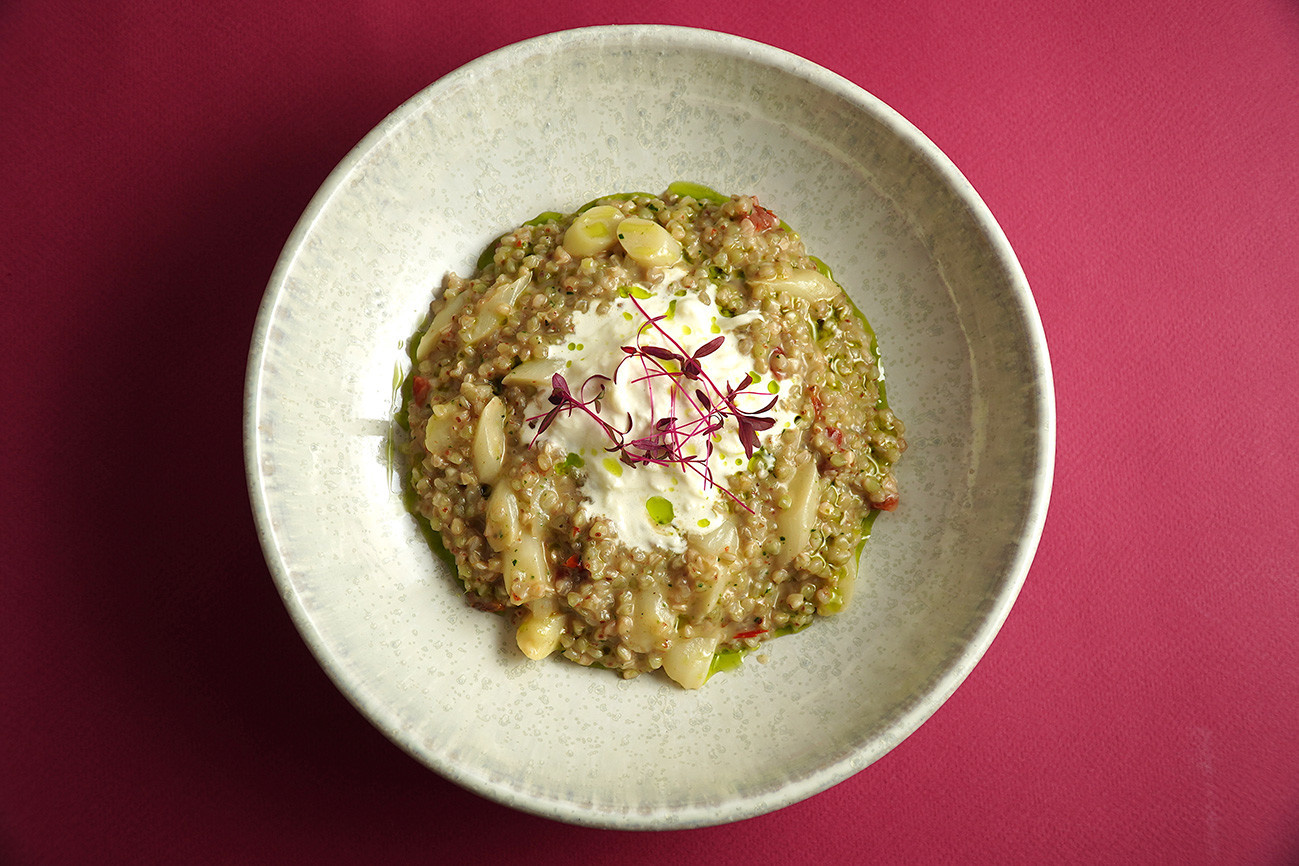
White asparagus with green buckwheat and stracciatella.
Press ServiceRussia has a lot of quality produce, which is something we forget at times - cereals, dairy, mushrooms and so on. I try to use them in my dishes, to find exciting ways of mixing them. This is how our green buckwheat with stracciatella came about. The buckwheat - a truly Russian cereal - is cooked in the style of risotto and served with stracciatella and parmesan. The result is perfect.
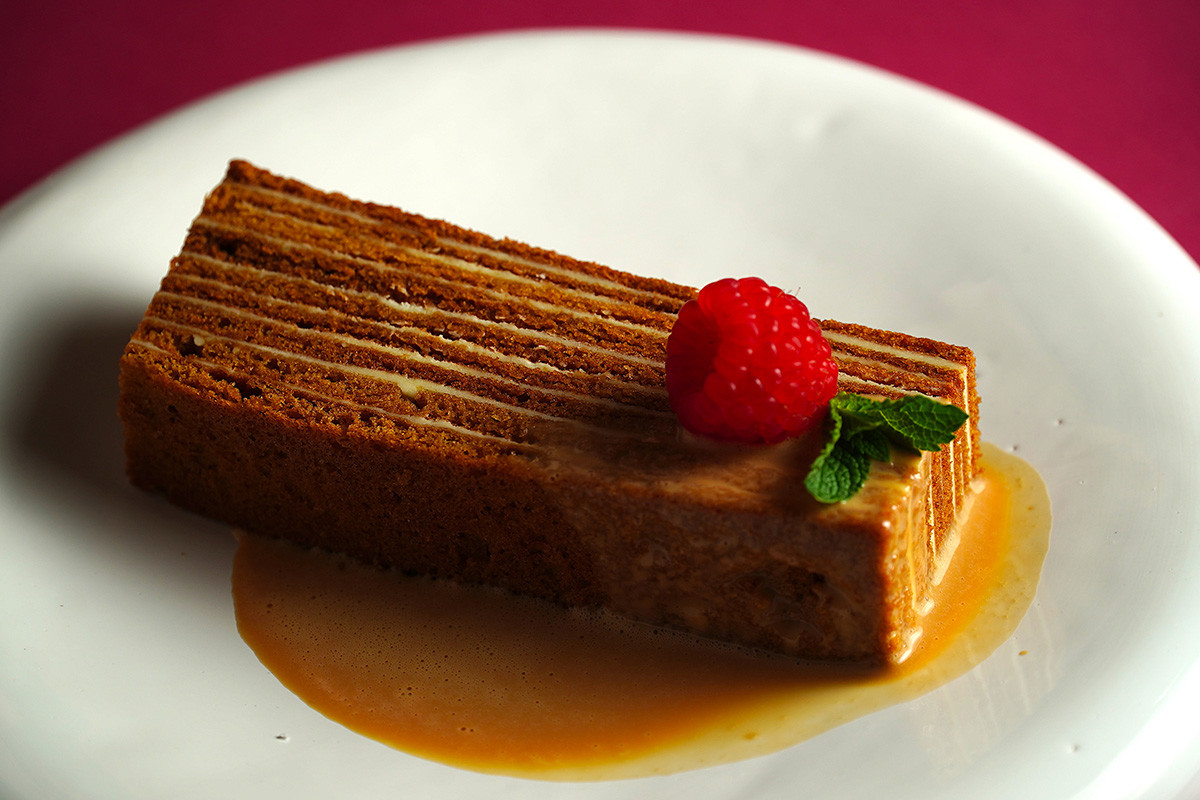
A medovik (honey cake) with a ryazhenka-based sauce.
Press ServiceThere are plenty, but right now I wouldn’t say no to sauerkraut shchi, the kind that’s left to stand in the oven first.
I love making tartare versions of just about anything, but this particular dish takes me back to my childhood, to the village where I spent my summers. My grandmother would pickle herbs in jars to store for the entire year and that included parsley, together with the stem. As a child, I would often sneak the parsley out of the jars. So, with this dish, we’re doing a classic tartare using beef and adding cornichons, shallots, pickled parsley - it’s crunchy and reminds one of capers. We then add olive oil and serve malt aioli. In order to prepare all that, we boil the malt and then prepare it the way you would home-made mayonnaise - in order to reduce fat, we add soy milk. That’s how you get the Borodinsky bread aroma.
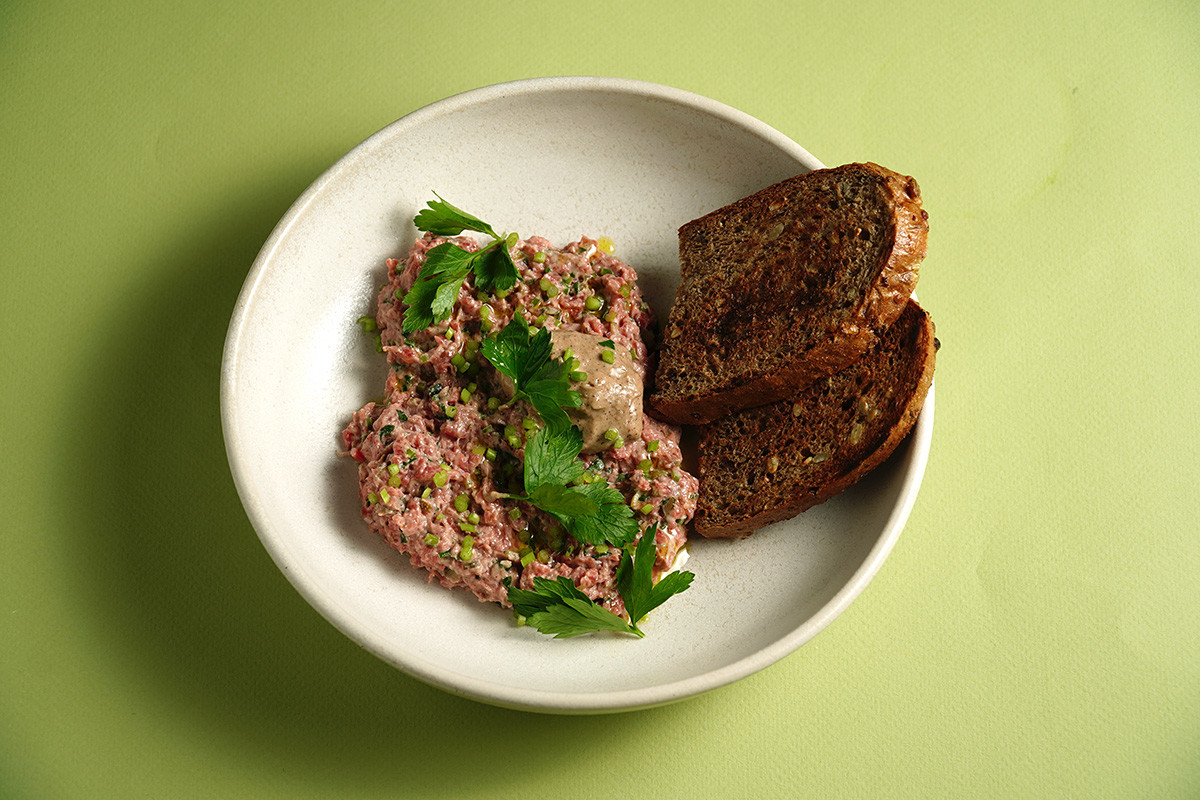
You’ve never had beef tartare quite like this before!
Press Service1. Chop the parsley, add salt and let stand.
1. Add hot water to the malt, stir and cool.
1. Add hot water to walnuts, let stand and rinse.
2. Mix all of the ingredients (except the vegetable oil) in a blender.
3. Gradually add vegetable oil and mix.
4. Rinse the resulting dressing.
1. Cut into small cubes the steak, capers, shallots, cornichons and parsley stems. Mix with the dressing, add some salt, stir the results and lay out on a plate.
2. Season with chopped dill and add a splash of olive oil.
3. Place the Borodinsky bread croutons on the side.
If using any of Russia Beyond's content, partly or in full, always provide an active hyperlink to the original material.
Subscribe
to our newsletter!
Get the week's best stories straight to your inbox